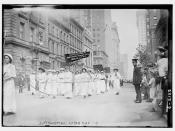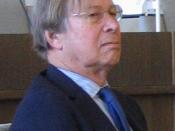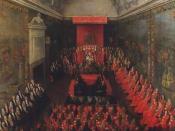If we accept the hypothesis, that judges do indeed make law through their decisions, we need to look closely at the judges themselves to decide whether they are capable of performing that function. Judges are not, in this country, elected, as are the other law-makers (the legislators). If judges had no law-making role, then the uncertainty over judicial decision making would not arise; it would not matter whether the judiciary was representative of the society within which it operates, or whether it was capable of acting impartially. Lord Denning stated that: "Every judge on his appointment discards all politics and all prejudices. You need have no fear. The Judges of England have always in the past - and always will - be vigilant in guarding our freedoms. Someone must be trusted. Let it be the Judges." However, if judges were simply applying the law when making decisions, then it would not matter who was fulfilling that role, because, everybody would reach the same decision in every case, unless a judge happened to misapply the law, in which case another court could put him right.
But judges reach very different decisions upon the same facts; there is no common agreement as to what the law is, and Hart argues that in many cases the judges are not only applying the existing law, but they are making new law. Another question which must be addressed is whether or not the largely similar background of judges results in judicial clones that not only think alike but tend to think along conservative or at any rate 'establishment' lines. Positivists, such as Herbert Hart, argue that judges require discretion to fill in criticism gaps. On the other hand critics of Hart, such as Ronald Dworkin, state that decisions in hard cases should be made through...



Adjudication question
very good analysis and clearly written. could have criticised the theorists more.
1 out of 1 people found this comment useful.